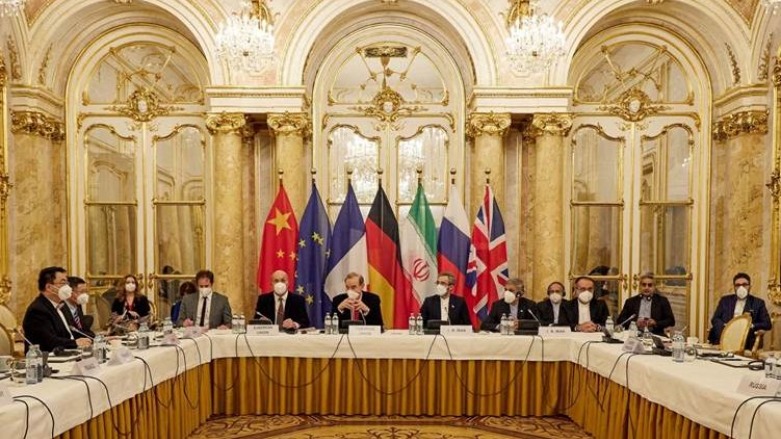Iran makes significant concession, as nuclear talks resume

WASHINGTON DC (Kurdistan 24) - The International Atomic Energy Agency (IAEA) and Tehran announced that an agreement had been reached on re-installing cameras at a key nuclear facility, which manufactures parts for centrifuges.
Iran claimed that the site was the target of an Israeli sabotage attack on June 20. Subsequently, it refused to allow the IAEA to replace those cameras.
However, on Wednesday, the IAEA issued a statement explaining that it would “soon install new surveillance cameras at Iran’s Karaj centrifuge component manufacturing workshop,” following an agreement between the IAEA’s Director General Rafael Mariano Grossi and the Head of Iran’s Atomic Energy Organization, Mohammad Eslami.
The new cameras “will replace those that were removed from the Karaj facility earlier this year,” the IAEA statement said, while the Agency and Iran would “continue to work on remaining outstanding safeguards issues with the aim of resolving them.”
Wednesday’s agreement comes after talks resumed late last week on restoring the 2015 accord on Iran’s nuclear program, formally known as the Joint Comprehensive Agreement (JCPOA), from which US President Donald Trump withdrew in 2018, with the strong encouragement of then-Israeli Prime Minister Benjamin Netanyahu.
The talks in Vienna include the P-5+1: the five permanent members of the UN Security Council plus Germany. The discussions seemed to be making no progress in the face of the tough position taken by Iran’s new hard-line government, which assumed office last August.
Thus, on Tuesday, the E-3 (France, Germany, and the UK) issued a joint statement, which was read out on Tuesday at the United Nations by the French ambassador, Nicholas de Riviere.
“Iran has walked back hard-fought compromises reached after many weeks of challenging negotiations,” de Riviere told the Security Council, referring to the initial six rounds of talks, held between April and June with the previous Iranian government.
“We are nearing the point where Iran’s escalation of [Iran’s] nuclear program will have completely hollowed out the JCPOA,” de Riviere warned.
US Secretary of State Antony Blinken, was in Indonesia on Tuesday to address the national security threat posed by China—which is Washington’s top concern.
In a press conference there, Blinken was asked about the status of the Iranian nuclear talks. He responded by referring to the E-3 statement, adding “What we’ve seen so far is Iran losing precious time by advancing totally new positions that are inconsistent with a return to the JCPOA.”
“We continue,” Blinken added, “to pursue diplomacy because it remains, at this moment, the best option. But we are actively engaging with allies and partners on alternatives.”
Wednesday’s agreement between the IAEA and Tehran will probably satisfy the US and E-3 for now. It may even, perhaps, be seen as vindication of the Biden administration’s approach. However, serious issues remain, and Israel, along with other US allies in the region, remain highly skeptical.
